At a glance
In the post-COVID era, what does the future hold for the “Clean Beauty” trend in 2021? Comparing France and the United States.
The 2020 pandemic has clearly reshuffled the cards in the current landscape of the beauty industry. Some consumer trends have been confirmed but others have been dramatically modified by the health crisis. Today, I wanted to focus on the impact of the Coronavirus on one of them, “Clean Beauty”. What are the consequences of the Coronavirus on the behavior and desires of natural beauty consumers in 2021?
Before getting to the point, I have to tell you that this article is a bit special. I started thinking about it a few weeks ago, after I had read several articles in the professional beauty press that addressed the subject of 2021 beauty trends.
I regularly read French and English professional magazines to keep myself informed on the latest trends. In general, consumers’ priorities are relatively similar from one market to another. There are always local differences, of course, but if you look at the major trends, they’re quite similar.
However, this year, I noticed a fairly distinct and different interpretation between the French and English press regarding the evolution of the “Clean Beauty” trend. This difference caught my attention and I started thinking about it closely.
But I didn’t feel like mulling over it alone for once! So I talked about it with the subscribers on my Instagram account bonniegarner. It’s not the first time I’ve done that and I’m very lucky, I have a very committed community. They’re always up for a good discussion! My subscribers always give me some very interesting food for thought! We don’t always agree, but we can discuss and exchange arguments in a civilized way.
It means that this article is participative of sorts! I will use some of the answers given by my subscribers to illustrate my point. They have very diverse profiles: some work in the beauty industry, but definitely not all of them. What they all have in common is that they’re all passionate about cosmetics and could talk about it for hours! Believe me, they are as fascinating as they look and their comments are super valuable. And this topic has definitely inspired them! If you want to see how it turned out, I’ve kept all their answers on my Instagram profile page 😉 (most of them are in French).
I’m very grateful for their commitment, and I thank them very much for taking the time to discuss this with me. And of course, I wanted to open this conversation in a broader way with my article today! Because I personally believe this topic could interest a lot of people 🙂
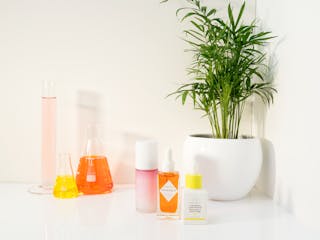 SkincareIs the “non-toxic” cosmetics trend irrelevant?
Today, let’s talk about cosmetics’ vocabulary, marketing, and legislation. No, don’t go! I swear it’s not as boring as it sounds!
Read more
SkincareIs the “non-toxic” cosmetics trend irrelevant?
Today, let’s talk about cosmetics’ vocabulary, marketing, and legislation. No, don’t go! I swear it’s not as boring as it sounds!
Read more
If you’re a cosmetics user, you couldn’t pass it up. “Clean Beauty” is everywhere. A true revolution!
In this article, I won’t really go back on my opinion about “Clean Beauty”, I already talked about it several times (here and here to quote only these two articles), I will rather try to act as an observer, in most of this article, for once.
What is certain is that within a few years, the demand for “clean” products, (whether it is justified or not), has become unmistakable. The beauty consumer is now looking for products that are good for his/her health and good for the planet. This desire for products that are reassuring, both in terms of content and form, has spread in the hygiene and skincare segments, but also more recently in makeup and, ultimately, in all beauty categories.
And the Covid crisis has only increased consumer demand for products that make them feel safe and secure. But as we are about to see, depending on the markets, the impact of the pandemic has not provoked the same reactions and the future of this trend is likely to take several forms…
“Clean Beauty”, the origin:
The emergence of “Clean Beauty” is directly linked to a loss of confidence from consumers in their cosmetic products.
Distrust of large pharmaceutical groups following health scandals, which by extension rebounded on their equivalents in cosmetics. The lack of transparency from brands, with an excessive opacity in the marketing jargon used in the communication campaigns of beauty products didn’t really help… All this accelerated the mistrust of consumers towards the big groups (compared to “big pharma”) at first, then little by little against the whole cosmetics industry.
The industry didn’t really react to this mistrust at the beginning, probably thinking that this trend would only be temporary. A few rare exceptions tried to educate their customers to dissipate this “fear” (= the brand I was working for 10 years ago, for example) but after a while, it became obvious that consumers now want “clean” and “natural” cosmetic products, not too “chemical”. And ideally, for brand retailers in France, they also need to pass the test of cosmetic applications, where you scan the lists of ingredients to define whether they are “clean” or not.
If I take the example of France, this has now almost become a standard: most new product launches have to be “clean” and/or “natural”. And the Covid crisis has only reinforced this trend, which is already very strong, regardless of the distribution circuit. Even in French pharmacies, more “conventional” brands are starting to launch “app friendly” products or even proudly mention their “97% natural origin” formula, like the latest Bariéderm Cica Daily serum from the very traditional pharmacy brand Uriage.
In France, the desire for naturalness intensifies:
At the beginning, there is probably a cultural reason for this very French attachment to natural skincare. According to Alice, French people « have a very strong bond with ingredients, sensoriality. » And this would be linked to their « culture of love of food. In France, we love good things, good smells, good products. And of course, you can feel that in beauty products as well. » French consumers « will tend to be wary of a cream that doesn’t smell good, or is blue, for example, and will immediately be judged as too chemical. »
a return to Mother Nature…
The “Clean Beauty” trend in France is very much associated with the desire for a “greener” lifestyle. For Astrid, « In France, there has been a real ‘back to nature’ movement since the beginning of the pandemic. People are leaving the big cities for the countryside, the sale of organic food products has exploded, the organic farms can no longer supply the huge demand! And of course cosmetics are following. It’s a way to feel reassured, no doubt about it. And also to turn to natural products in a period where science seems powerless. Science seems to be showing its limits, so a return to Mother Nature seems reassuring and quite a logical alternative in the end. »
This perception of science is well rooted in certain minds in France even if the facts prove the contrary: the speed at which scientists have designed and tested effective vaccines definitely inspires admiration!
For several years now, consumers have been sensitive to the composition of the cosmetics they use, due to environmental issues. But in some cases, it goes even further. Another of my readers « thinks that the media have highlighted the extent to which the Covid crisis is linked to climate change. This may explain this desire to turn to more natural cosmetics, whether we do it for ourselves or for the environment! The pandemic has also led to the development of conspiracy reflexes and this has fed a major fear in relation to big industries in general, whether it’ s pharmaceuticals (with the rise of the anti-vaccine movement) or cosmetics. »
However, as you’ll see below, if you take the example of the North American market, the “Clean Beauty” trend is losing momentum and consumers are now expecting more from their cosmetic products!
In the US, science is back!
The ” Clean Beauty ” trend was indeed born in the United States, around 2015, with a growing demand for “non-toxic” products (I had discussed this in detail a few years ago in my article “Is the “non-toxic” cosmetics trend irrelevant?“). American consumers, rightly or wrongly, were under the impression that their regulations regarding cosmetics in their country were obsolete and that certain ingredients in their cosmetics were not properly regulated and therefore potentially dangerous for them. Natural products were clearly on the rise!
people are tired with anti-science rhetoric…
But recently, there was a big shift. With the Covid crisis of 2020, the trend has evolved and “clinical” brands are the ones that more American consumers want to turn to, especially among the younger generation.
Is it because people are tired with anti-science rhetoric, symbolized perhaps by Donald Trump’s most infamous statement in 2020 that in order to cure Coronavirus, you could try injecting bleach directly into your veins? (remember the reaction of his scientific communication manager, Dr. Fauci 🤦♂️).
It’s a possibility!
Now, to convince consumers, brands distributed in the United States are promoting their “scientific” ingredients, such as peptides or retinol. These are usually synthesized in laboratories, they don’t grow on trees. Actually, at the moment, the link between these formulas and the pharmaceutical industries helps reassure consumers of their seriousness and effectiveness!
Two brands belonging to this movement have made a resounding comeback recently:
– Cerave, a drugstore brand highly popular among American dermatologists, which has become THE favorite brand of the youngest consumers. They like it so much that a lot of their products are always out-of-stock at the moment!
– and Paula’s Choice (which I personally love for its reliability and its advanced and great formulas), is now a hit on social media and super popular among Gen-Z!
Skincare influencers became a real phenomenon during the pandemic.
They sometimes have millions of followers on platforms such as Instagram, TikTok or Twitter; this is the case for Hyram, a young American from Hawaii who first worked as a sales person for cosmetic brands. He played a key role in Cerave’s recent comeback 😉
Most of these content creators are very attached to these types of brands, with a very scientific approach.
Indeed, after years of reign of ” wellness ” and ” lifestyle ” influencers, the time has now come for ” pharm-influencers “, with a much more expert profile! More oriented on scientifically proven facts than on crystals, or other jade rollers, they are, for many of them, highly qualified (they’re formulators, like Jen from The Eco Well, Annalisa @Skinperspective and Linda from the Instagram @lepamperedpig account, or specialized in scientific communication like Michelle LabMuffin). They generally have a scientific or professional background in cosmetics and are specialists in “myths busting”.
On social media, especially on Instagram, their short and informative posts are very popular and their community appreciates them for their transparency and the quality of the information they provide.
As for cosmetic brands, the response is more mixed. Some brands appreciate the feedback and/or constructive criticism about their products, while others (especially those claiming to belong to the “Clean Beauty” movement) consider these influencers more as a nuisance. Indeed, it’s not easy to convince people they need your beautiful serum based on crystals if a formulating chemist comes along and explains to your future customers in the comments that crystals have no scientifically proven effect on the skin!
For consumers, on the other hand, it’s definitely a win-win situation! Thanks to their informative and generally easy to understand posts, these “expert” influencers give them the keys to improve their product choices and also encourage the beauty industry to be more transparent and honest in their communication, which is clearly not a bad thing…😊
Why is there such a difference between the French and US markets regarding the evolution of this trend?
Of course, the culture of cosmetics consumers is quite different in these two markets. Traditionally, the French consumer is very attached to naturalness, as we saw above. The American consumer, on the other hand, has a tendency to appreciate the advice of medical professionals and brands more focused on active ingredients with “scientifically proven” benefits.
According to Yi Xian, from Singapore, « In the United States, the principle of always going to a licensed dermatologist for proper advice is very much ingrained in the mindset compared to Europe, where concepts such as biodynamic agriculture, ECOCERT, COSMOS and other ecological organizations have emerged and are part of the concerns of European consumers.» She adds: « It’s interesting to note that among English speaking markets, brands of thermal spring water from French pharmacies such as Avène, La Roche Posay etc. have long been using a very “naturalist” marketing approach as well as an approach based on clinical data. »
A great way to combine both sides of the table to win the bet? 😉
Another hypothesis would be that environmental issues are not as much of a concern to American consumers as they are to French consumers. This is the hypothesis defended by Céline, who believes that « ecology doesn’t have a big impact on the American consumer’s purchasing decision. And that the efficiency of a product will always be more important than its ethics for them. »
a growing demand for more “expert” content…
According to Aline, the lack of education of the French consumer is also to blame, and she thinks that the French consumer “has rather a bad culture when it comes to cosmetology and dermatology in the first place. “French-style luxury” is highly celebrated, with pretty textures, fragrances, bottles… But looking at advertisements in magazines, or on TV, there is not much talk about the science behind the ingredients. It’s difficult in these conditions to gain a proper education on cosmetics, as long as we don’t get rid of this luxury straitjacket. »
However, the younger generation is shaking up these lines, whether in the North American or French market. If their parents were not interested in the ecological aspect of things, in the United States, the Gen Z (= people born between 1997 and 2010) are more and more concerned about global warming and are showing a strong interest in brands’ engagement. The consumer, who is increasingly well informed and even militant, now wants to be holistic. For example, we are hearing more and more about Blue Beauty (= a more ethical and responsible approach, particularly in the use of water and the preservation of the oceans.) According to a recent study by the Kantar Institute, nearly 20% of consumers now associate the beauty sector with social and environmental responsibility. In 2016, this percentage was only 10%.
For French consumers, especially younger ones, who are following in the footsteps of the English-speaking world, there is a growing demand for more “expert” content on social media. This is obviously just the beginning, but many content creators more focused on the “scientific approach” are starting to emerge and some of them are already very popular (I’m thinking in particular about the uber-famous Dr. Muneeb Shah @dermdoctor, a derm with a very scientific/ medical approach who produces content tailored to to his 4 millions followers on TikTok)..
But the economic crisis generated by the current health crisis is also shaping behaviors. According to Camille, « during the many lockdowns because of the pandemic, people had the time and also the need to take care of themselves, and the creators who were then offering THE content people were looking for, suddenly became super popular! Especially those who chose to target more “basic”, conventional (and often more petrochemical, it’s true) but mostly cheap skincare products. This worked particularly well with younger consumers. In other words, those who have a smaller budget or no budget at all to spend on cosmetics, but who are very eager to try! » She continues: « In the US, with the financial impact of the pandemic on the overall budget of those who have lost their jobs and salaries, it definitely counted as well. Brands like The Ordinary have already proven to a large portion of North American consumers that you don’t have to pay a lot of money for quality and good skincare results. I guess it made it easier for the beauty customer there to consider trying these affordable options of skincare without thinking that they were going to lower the quality of their routine. »
In the end, it’s quite possible that this crisis, which is impacting us all around the world, will bring together the concerns of consumers in different markets faster than we thought.
Will the world after Covid finally be a world of safe and ethical beauty?
In the future, even if the “Clean Beauty” movement is still far from disappearing, the unprecedented impact of Covid-19 will inevitably have implications on the world of the beauty business.
Before the pandemic, consumers looking for more natural products, avoided using ingredients considered too “artificial”, or even certain preservatives in their beauty products, as they were considered by them to be a health risk. Now, with a more hygienist behaviour caused by the pandemic, we are instead witnessing a rise in concerns about the lifespan and hygiene of skincare products. Consumers are now more likely to accept these ingredients as long as brands prove their efficacy and safety for both health and the environment.
Science has to be ethical!
According to a recent study conducted by Mintel in the United States about ” Clean Beauty “, more than one adult out of ten believes that the expiration date of “clean” products is too close to the date of purchase and do not want to see their products expire too quickly (I myself had experienced this kind of issue, remember). In the United States, the company that controls the safety of cosmetics (the FDA) must regularly recall from sale products that are not sufficiently well preserved. And in recent years, their number has increased significantly due to the decline in the use of preservative ingredients criticized by the “Clean Beauty” movement. Personally, I prefer my moisturizer bacteria free, but, you do you 😉
Consumers continue to educate themselves about formulas and are likely to become increasingly interested in the safety of ingredients. Not so much in the sense of their “toxicity” as they may have done in the past, but rather with regard to the risk of possible contamination and expiration of the product. The future of “clean” product formulations will undoubtedly rest on the use of synthetic ingredients that are safe for health and that improve their shelf life.
The anxiety and uncertainty caused by the pandemic will undoubtedly lead to an increased need for reliable and safe cosmetics. Brands that demonstrate reliability, transparency and willingness to take action to ensure the safety of their products are more likely to be popular with consumers in the long term.
This will soon undoubtedly be an important issue for cosmetic brands. Consumer pressure is already very strong. Transparency is required, and it is essential for brands to communicate about the safety, longevity and efficacy of their products to avoid triggering consumer mistrust. For many consumers, the coronavirus crisis has indeed led to the realization that natural is not always the best option, especially when it comes to the safety of ingredients.
The ecological issue is already a major concern for consumers and, of course, this trend will continue to grow. Far from overshadowing climate change, the pandemic has only made ecological precariousness more real. Consumers want to feel safe, but not at the expense of the planet. Science has to be ethical!
Be careful with greenwashing! Savvy consumers are more and more aware of the issue. The ‘natural’ portrayed veneer of certain products is no longer aligned with the aspirations of consumers. They quickly realize that the excessive use of certain natural ingredients can be counterproductive because it is not always as environmentally friendly as it sounds.
This is exemplified through a very popular ingredient at the moment: Bakuchiol. It is still promoted as a natural alternative to retinol. The plant from which this ingredient is derived, Psoralea Corylifolia is becoming an endangered plant. Its low rate of germination is totally incompatible with the burden of intensive exploitation! The current high demand could have disastrous effects on the plant and the planet. Producing and consuming better doesn’t mean blindly excluding synthetic ingredients: no consumption, even the most natural, is neutral for the planet and consumers are becoming more and more aware of this.
Consumers already favor brands whose models emphasize “a mission rather than profit”. More than ever before, companies will strive to reduce excess packaging, avoid unethical ingredients while offering products that are accessible to as many people as possible. Investing in sustainable development is a winning bet for brands regarding both turnover and reputation!
The pandemic will certainly push companies to think outside the box and take a broader view of sustainability and biodiversity. The winners in the current crisis are likely to be those who use technology in an enlightened and environmentally friendly way.
Perhaps a way to finally reconcile mind, body and planet!
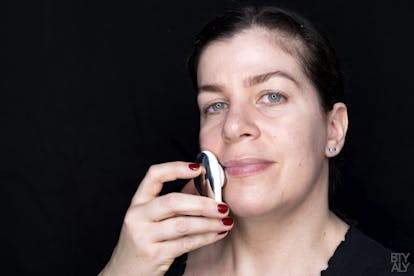
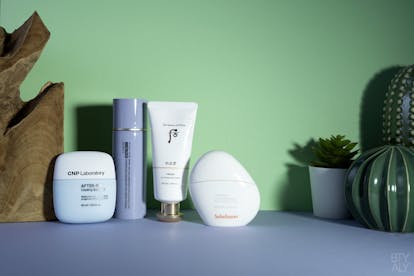
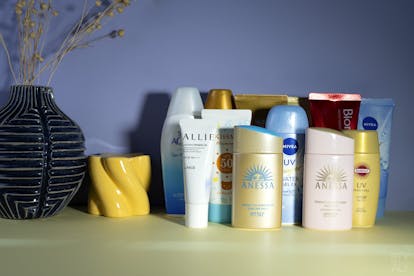
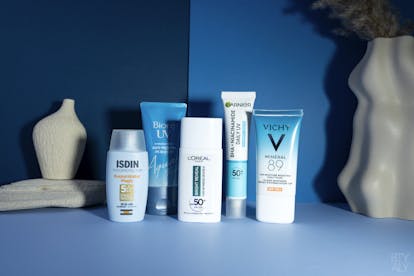
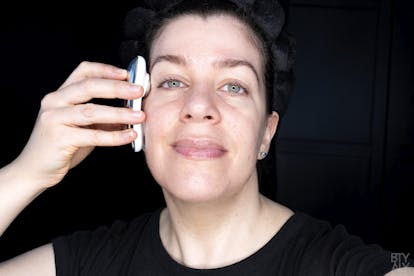
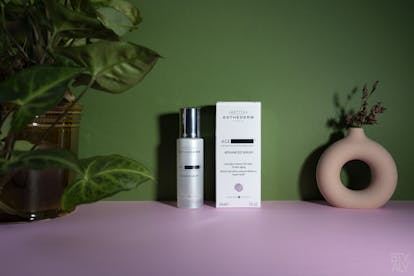
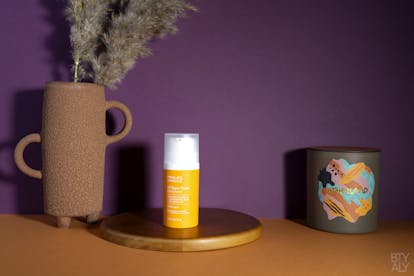
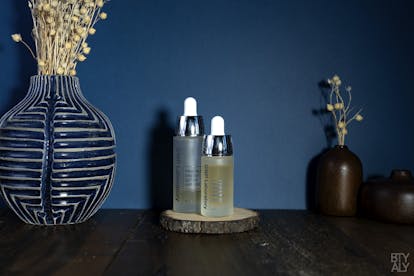
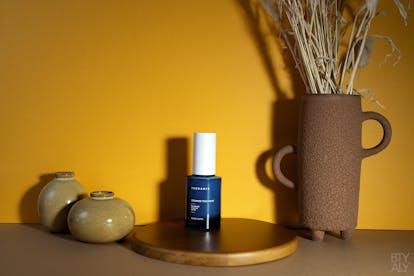
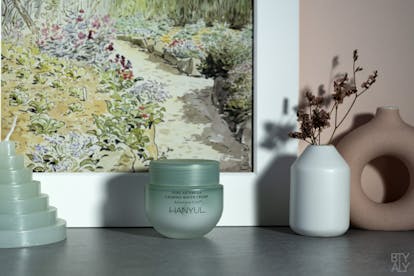
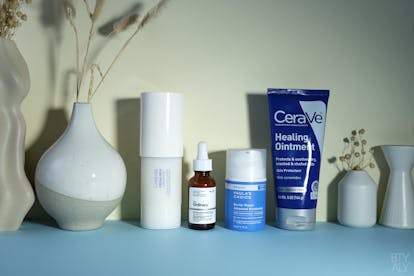
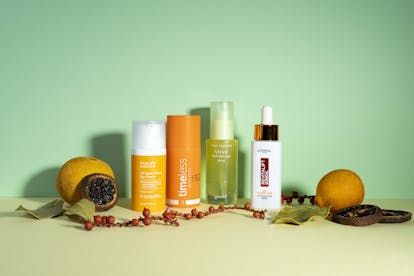
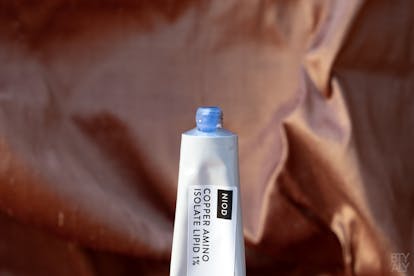
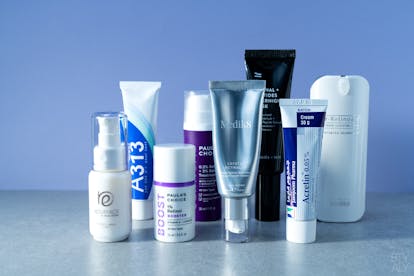
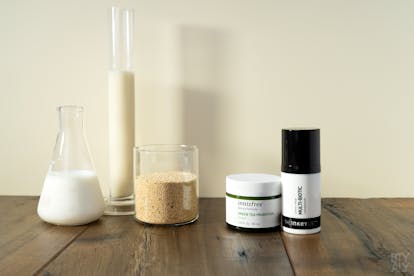
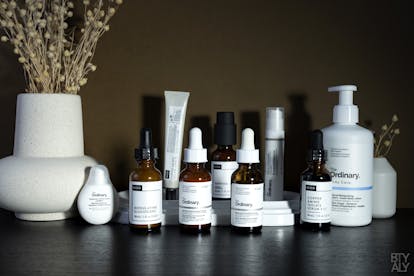

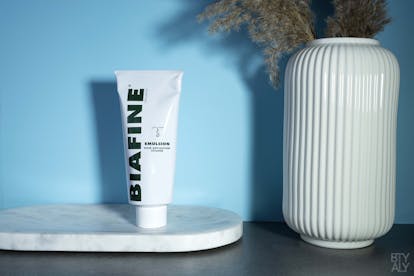
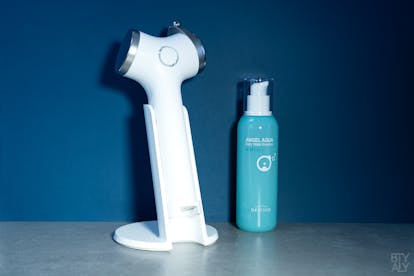
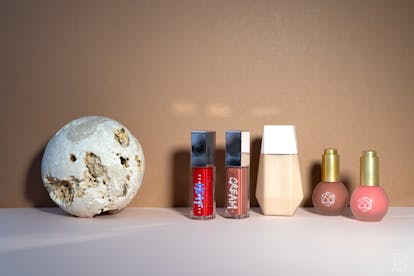
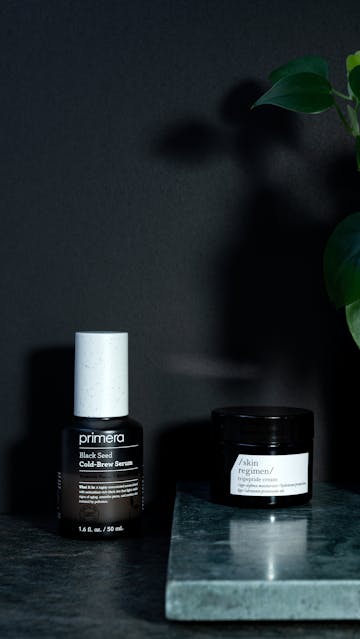

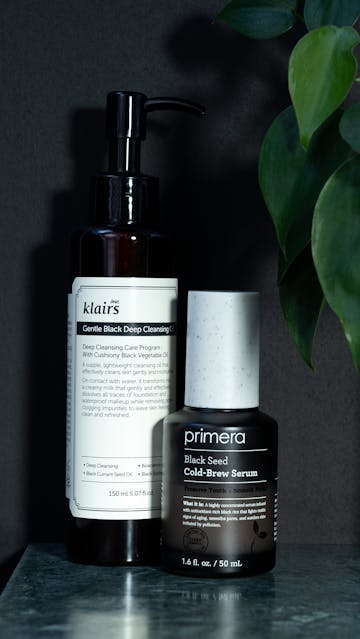
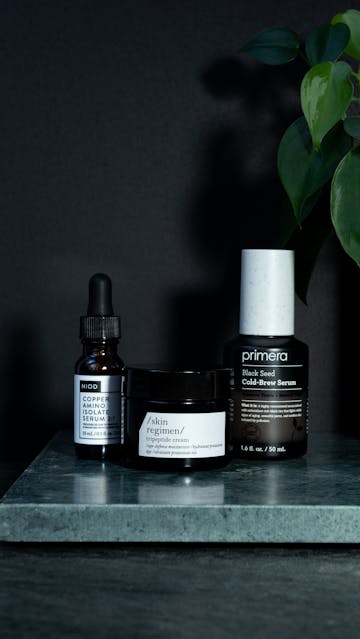
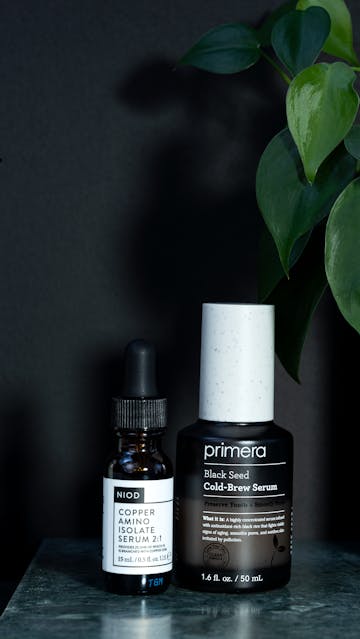
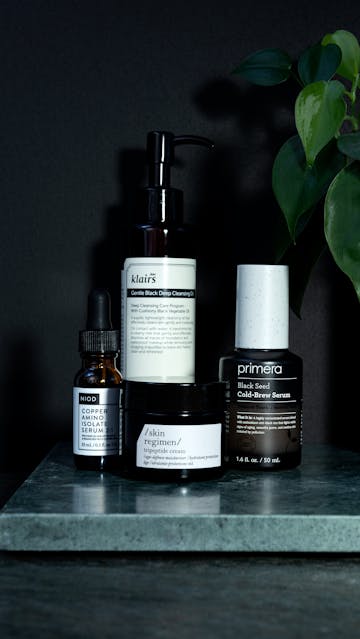
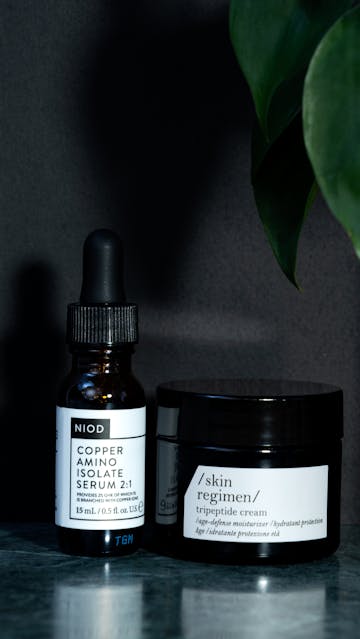
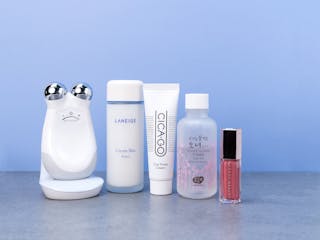
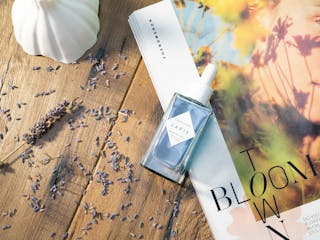
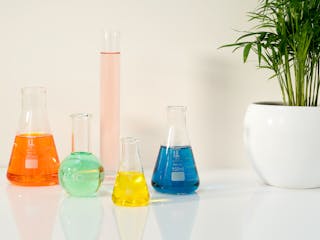










French pharmacie products and Made In France remains underrated as a force in FMCG commodities, compared to the steeped history of so many French brands. This really hit home in your Stories, which were filled with very eloquent and incisive messages that I could only comprehend with Google Lens 😂I’m glad to read your comprehensive summary in English, together with your personal perspective on the topic!
Thank you so much, I’m so glad you liked it! I loved your insightful comment, it was super inspiring! (and the fact that you took the time to read all the stories in French, I most definitely appreciated it 🙌🙌🙌)